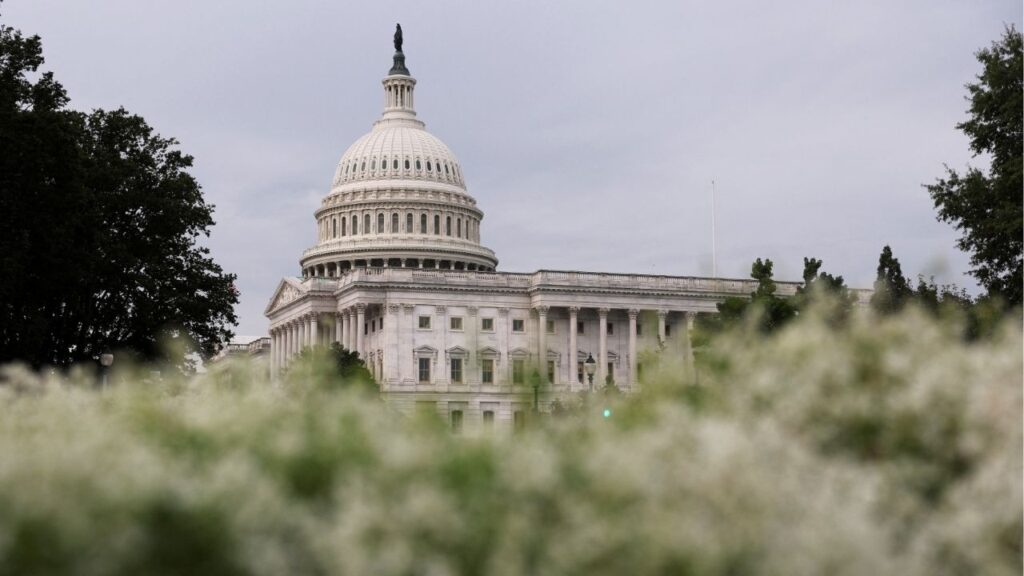Share
WASHINGTON — The United States completed its withdrawal from Afghanistan late Monday, ending America’s longest war and closing a chapter in military history likely to be remembered for colossal failures, unfulfilled promises and a frantic final exit that cost the lives of more than 180 Afghans and 13 U.S. service members, some barely older than the war.
Hours ahead of President Joe Biden’s Tuesday deadline for shutting down a final airlift, and thus ending the U.S. war, Air Force transport planes carried a remaining contingent of troops from Kabul airport. Thousands of troops had spent a harrowing two weeks protecting a hurried and risky airlift of tens of thousands of Afghans, Americans and others seeking to escape a country once again ruled by Taliban militants.
In announcing the completion of the evacuation and war effort. Gen. Frank McKenzie, head of U.S. Central Command, said the last planes took off from Kabul airport at 3:29 p.m. Washington time, or one minute before midnight in Kabul. He said a number of American citizens, likely numbering in “the very low hundreds,” were left behind, and that he believes they will still be able to leave the country.
The airport had become a U.S.-controlled island, a last stand in a 20-year war that claimed more than 2,400 American lives.
Final Pullout Fulfills Biden’s Pledge to End the ‘Forever War’
The closing hours of the evacuation were marked by extraordinary drama. American troops faced the daunting task of getting final evacuees onto planes while also getting themselves and some of their equipment out, even as they monitored repeated threats — and at least two actual attacks — by the Islamic State group’s Afghanistan affiliate. A suicide bombing on Aug. 26 killed 13 American service members and some 169 Afghans.
The final pullout fulfilled Biden’s pledge to end what he called a “forever war” that began in response to the attacks of Sept. 11, 2001, that killed nearly 3,000 people in New York, Washington and rural Pennsylvania. His decision, announced in April, reflected a national weariness of the Afghanistan conflict. Now he faces condemnation at home and abroad, not so much for ending the war as for his handling of a final evacuation that unfolded in chaos and raised doubts about U.S. credibility.
The U.S. war effort at times seemed to grind on with no endgame in mind, little hope for victory and minimal care by Congress for the way tens of billions of dollars were spent for two decades. The human cost piled up — tens of thousands of Americans injured in addition to the dead, and untold numbers suffering psychological wounds they live with or have not yet recognized they will live with.
More than 1,100 troops from coalition countries and more than 100,000 Afghan forces and civilians died, according to Brown University’s Costs of War project.
In Biden’s view the war could have ended 10 years ago with the U.S. killing of Osama bin Laden, whose al-Qaida extremist network planned and executed the 9/11 plot from an Afghanistan sanctuary. Al-Qaida has been vastly diminished, preventing it thus far from again attacking the United States.
Public Hearings to Be Held to Discuss Shortcomings
Congressional committees, whose interest in the war waned over the years, are expected to hold public hearings on what went wrong in the final months of the U.S. withdrawal. Why, for example, did the administration not begin earlier the evacuation of American citizens as well as Afghans who had helped the U.S. war effort and felt vulnerable to retribution by the Taliban? It wasn’t clear whether any American citizens who wanted to get out were left behind, but untold thousands of at-risk Afghans were.
It was not supposed to end this way. The administration’s plan, after declaring its intention to withdraw all combat troops, was to keep the U.S. Embassy in Kabul open, protected by a force of about 650 U.S. troops, including a contingent that would secure the airport along with partner countries. Washington planned to give the now-defunct Afghan government billions more to prop up its army.
Biden now faces doubts about his plan to prevent al-Qaida from regenerating in Afghanistan and of suppressing threats posed by other extremist groups such as the Islamic State group’s Afghanistan affiliate. The Taliban are enemies of the Islamic State group but retain links to a diminished al-Qaida.
The final U.S. exit included the withdrawal of its diplomats, although the State Department has left open the possibility of resuming some level of diplomacy with the Taliban depending on how they conduct themselves in establishing a government and adhering to international pleas for the protection of human rights.
Biden Defends Decision to Withdraw Troops
The speed with which the Taliban captured Kabul on Aug. 15 caught the Biden administration by surprise. It forced the U.S. to empty its embassy and frantically accelerate an evacuation effort that featured an extraordinary airlift executed mainly by the U.S. Air Force, with American ground forces protecting the airfield. The airlift began in such chaos that a number of Afghans died on the airfield, including at least one who attempted to cling to the airframe of a C-17 transport plane as it sped down the runway.
By the evacuation’s conclusion, well over 100,000 people, mostly Afghans, had been flown to safety. The dangers of carrying out such a mission while surrounded by the newly victorious Taliban and faced with attacks by the Islamic State came into tragic focus on Aug. 26 when an IS suicide bomber detonated himself at an airport gate, killing at least 169 Afghans and 13 Americans.
Speaking shortly after that attack, Biden stuck to his view that ending the war was the right move. He said it was past time for the United States to focus on threats emanating from elsewhere in the world.
“Ladies and gentlemen,” he said, “It was time to end a 20-year war.”
Bush Declares War 20 Years Ago After 9/11 Attacks
The war’s start was an echo of a promise President George W. Bush made while standing atop of the rubble in New York City three days after hijacked airliners slammed into the twin towers of the World Trade Center.
“The people who knocked these buildings down will hear all of us soon!” he declared through a bullhorn.
Less than a month later, on Oct. 7, Bush launched the war. The Taliban’s forces were overwhelmed and Kabul fell in a matter of weeks. A U.S.-installed government led by Hamid Karzai took over and bin Laden and his al-Qaida cohort escaped across the border into Pakistan. The stage was set for an ultimately futile U.S. effort to build a stable Afghanistan that could partner with the United States to prevent another 9/11.
The initial plan was to extinguish bin Laden’s al-Qaida, which had used Afghanistan as a staging base for its attack on the United States. The grander ambition was to fight a “Global War on Terrorism” based on the belief that military force could somehow defeat Islamic extremism. Afghanistan was but the first round of that fight.
War in Afghanistan Lasts Through 4 Presidents
Bush chose to make Iraq the next, invading in 2003 and getting mired in an even deadlier conflict that made Afghanistan a secondary priority until Barack Obama assumed the White House in 2009 and later that year decided to escalate in Afghanistan.
Obama pushed U.S. troop levels to 100,000, but the war dragged on while the Taliban used Pakistan as a sanctuary.
When Donald Trump entered the White House in 2017 he wanted to withdraw from Afghanistan but was persuaded not only to stay but to add several thousand U.S. troops and escalate attacks on the Taliban. Two years later his administration was looking for a deal with the Taliban, and in February 2020 the two sides signed an agreement that called for a complete U.S. withdrawal by May 2021. In exchange, the Taliban made a number of promises including a pledge not to attack U.S. troops.
Biden weighed advice from members of his national security team who argued for retaining the 2,500 troops who were in Afghanistan by the time he took office in January. But in mid-April he announced his decision to fully withdraw and initially set September as a deadline for getting out.
Afghan Army Surrenders to Taliban Despite Years of U.S. Support
The Taliban then pushed an offensive that by early August toppled key cities, including provincial capitals. The Afghan army largely collapsed, sometimes surrendering rather than taking a final stand, and shortly after President Ashraf Ghani fled the capital, the Taliban rolled into Kabul and assumed control on Aug. 15.
Some parts of their country modernized during the U.S. war years, but Afghanistan remains a tragedy, poor, unstable and with many of its people fearing a return to the brutality the country — especially women and girls — endured when the Taliban ruled from 1996 to 2001.
The U.S. failures were numerous. It degraded but never defeated the Taliban and ultimately failed to build an Afghan army that could hold off the insurgents, despite $83 billion in U.S. spending to train and equip the army. Among the unfulfilled promises: an enduring partnership with a U.S.-friendly Afghan government that could ensure the country would not again become a breeding ground for extremists bent on attacking the United States.
RELATED TOPICS:
Categories

Scotty Is Eager to Power Up Your Home With Kitten Energy

Dodgers Ace Clayton Kershaw to Retire After 2025 Season

Hanford Police Investigate Suspicious Death of 2-Year-Old Boy















